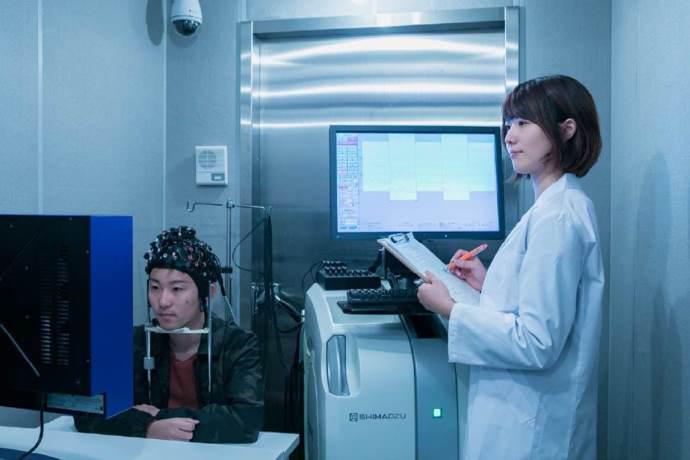
Computer Science and Engineering

Information and intelligence create the future society
The Department of Computer Science and Engineering covers a wide area of information science that support the infrastructure of a highly information-oriented society. The research areas of the department spread to:
- Theory: computer algorithms, theory of computation, machine learning.
- Software: data science, deep learning, Internet technologies, mobile/ubiquitous/distributed computing.
- Hardware: computer architecture of parallel processing and embedded systems.
- Application: multimedia processing of text/speech/image/graphics, human-robot interaction, human-machine interface, brain and cognitive science, bioinformatics.
To achieve its mission, the department provides attractive educational programs for students to learn computer science and engineering from the basics to advanced topics in two courses: The Computer and Information Science course and the Information and Systems Science course. These programs are expected to enable students to become leading engineers and researchers who are highly motivated and have the practical, creative, and management skills to drive an advanced next-generation information society within all industrial fields.
Education of excellent students in master and doctoral courses is conducted in cooperation with the Program for Leading Graduate School at the Toyohashi University of Technology: Doctoral Degree Program for Training Brain Information Architects. - Studying the brain, learning from the brain, and creating technology.
Research is performed in collaboration with the Electronics-Inspired Interdisciplinary Research Institute (EIIRIS) and Center for Human-Robot Symbiosis Research (CHRSR). Laboratories in the department are collaborating with industrial companies as well as academic institutes throughout the world.
Thus, the Department of Computer Science and Engineering is advancing research and education on information and intelligence science for engineering including basic sciences, advanced technologies, and interdisciplinary studies. We aim to create a safe, diverse, inclusive, sustainable, and good future society through utilizing information and intelligence sciences.
Fields of Study
Computer and Mathematics Sciences
The following research areas are included in this field: discrete optimization methods and general algorithms, reliable and high-performance low-power computer systems, information security, and language learning systems.
We are undertaking research on agent technologies, swarm intelligence, complex system informatics, immunological bioinformatics, and biointelligence for the design and development of artificial intelligence and new intelligent information systems that investigate intelligence and life using systematic scientific approach methods.
We are conducting researches on drug discovery technology that actively makes use of similarity matching and deep learning, development and knowledge discovery for innovation of drug related molecules and functional materials. In addition, theoretical design for novel bio- and nano-materials is underway, based on state-of-the-art molecular and quantum simulations using high-performance computing technologies.
Data Informatics
The following research areas are included in this field: data science, machine learning, and deep learning. Data science covers a variety of engineering principles dealing with "data", ranging from data mining, information retrieval, big data processing, natural language processing, text mining, machine translation, multimedia feature extraction, to genomes and bioinformatics, and computational social science. "Data" can be anything such as numeric data, time-series data, texts, images, sounds/voices, videos, 2D/3D shapes, Web data, and their combinations.
In data informatics, machine learning which naturally includes "deep learning", has been a key technology to analyzing the data we are dealing with.
We are conducting pioneering research on data informatics, investigating new technologies, leveraging the state-of-the-art theories and practices.
Human and Brain Informatics
Human and Brain Informatics is an interdisciplinary research domain to investigate human behavior and brain function/mechanisms based on informatics, and to develop frontiers of Information Technology (IT) based on human and brain sciences.
Scientific research on human cognition and behaviors using electrophysiological measurements, functional imaging of the brain as well as psychophysical and cognitive experiments is conducted to elucidate the function and mechanisms of the human information processing that connects the brain, mind, and body. It enables us to scientifically understand our perception such as vision and audition, motor action, cognitive behaviors, social cognition, and communication.
The scientific findings on human information processing facilitate research on computational theory, modeling and simulation regarding neural processing, thereby deepening our understanding of information science and creating innovative technologies in future.
Cutting-edge knowledge regarding brain and neural processing obtained by our behavioral and physiological experiments with computational theory enhances developments of neural engineering such as Brain Machine Interface (BMI) and Virtual Reality (VR). These technologies connect the physical world and the cyber world, and contribute to supporting various people across ages, disabilities, languages, cultures and countries.
Media Informatics and Robotics
We are investigating next generation technologies relating to media and robotics.
Media groups develop various types of applications using computer vision, computer graphics, AI, and ubiquitous sensing for environment and human behavior.
Robotics groups develop technologies about intelligent autonomous systems that recognize and react to their environment, and social relational robotics with the aim of forming social connections.
The mission of this research group is to build a foundation for systems that can support a broad range of media and industrial fields and human-robot communications in daily life.
[Date Created]10 Oct 2010 / [Date Updated]21 Aug 2020



